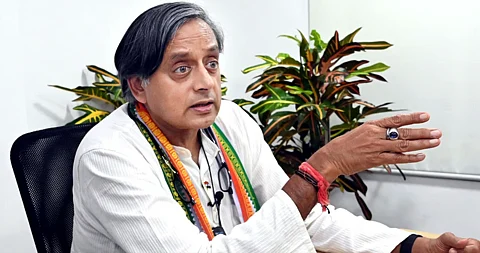

Congress Member of Parliament (MP) Shashi Tharoor has added his voice to growing criticism of the National Board of Examinations in Medical Sciences (NBEMS) over the severe shortage of NEET PG test centres, according to a report by Financial Express.
The postponement of NEET PG 2025 from June 15 to August 3 has triggered nationwide distress, with the lack of exam centres emerging as a major flashpoint. Tharoor highlighted the plight of Kerala's medical aspirants on social media, revealing that candidates were unable to secure test centres within their home state as slots were exhausted within minutes of the portal reopening.
The Congress MP criticised NBEMS for failing to ensure equitable access, particularly after the Supreme Court's mandate for a single-shift exam to maintain fairness. Tharoor condemned the restriction on centre numbers, pointing to the resulting distress, inconvenience, and financial burden placed on candidates.
Multiple users on social media platforms have backed Tharoor's claims, emphasising that the crisis extends far beyond Kerala's borders. Aspirants from various states have reported being forced to travel thousands of kilometres, endure lengthy train journeys, and shoulder significant financial costs just to appear for the career-defining examination.
Social media users have urged authorities to prioritise student welfare through "fair allocation of centres based on real-time applicant data," highlighting the mental stress and logistical challenges faced by candidates nationwide.
The Supreme Court's decision to postpone NEET PG 2025 stemmed from concerns raised by student groups and medical associations regarding NBEMS's initial plan for two shifts. Petitioners had argued that varying question paper difficulty across different shifts could lead to unfair outcomes, prompting demands for greater transparency in the normalisation process.
While the court's mandate for a single-shift examination aimed to ensure uniformity and address fairness concerns, the postponement has instead revealed significant planning deficiencies. The inadequate number of test centres and the absence of real-time data-driven allocation have left thousands of aspirants without nearby exam options, intensifying frustration and calls for comprehensive systemic reform.
